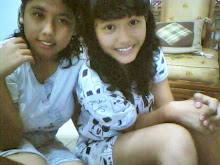DIRECT SPEECH
Direct speech refers to reproducing another person’s exact words or saying exactly what someone has said (sometimes called quoted speech)
Here what a person says appears within quotation marks ("...") and should be word for word.
For example:
She said, "Today's lesson is on presentations."
or
"Today's lesson is on presentations," she said.
Here what a person says appears within quotation marks ("...") and should be word for word.
For example:
She said, "Today's lesson is on presentations."
or
"Today's lesson is on presentations," she said.
INDIRECT SPEECH
Indirect speech reproducing the idea of another person’s words that doesn’t use question mark to enclose what the person said and it doesn’t have to be word for word. Indirect speech is sometimes called reported speech
For example:
Direct speech :"I'm going to the cinema", he said.
Indirect speech : He said he was going to the cinema.
TENSE CHANGE
No | DIRECT SPEECH | INDIRECT SPEECH | ||
Tenses | Direct Sentence | Tenses | Indirect Sentence | |
1 | Simple Present | Peter said, “I eat rice.” | Simple Past | Peter said that he ate rice. |
2 | Present Continuous | Peter said, ”I am eating rice.” | Past Continuous | Peter said that he was eating rice. |
3 | Present Perfect | Peter said, “I have eaten rice.” | Past Perfect | Peter said that he had eaten rice. |
4 | Present Perfect Continuous | Peter said, “I have been eating rice.” | Past Perfect Continuous | Peter said that he had been eating rice. |
5 | Simple Past | Peter said, “I ate rice.” | Past Perfect | Peter said that he had eaten rice. |
6 | Future | Peter said, “I will eat rice.” | Conditional | Peter said that he would eat rice. |
7 | Future Continuous | Peter said, ”I will be eating rice.” | Conditional Continuous | Peter said that he would be eating rice. |
8 | Modal | Peter said, “I can eat rice.” | Past Modal | Peter said that he could eat rice. |
when we want to report what someone said , we don’t usually repeat their exact words , we use our words , we can use reporting words such as tell say as follow by “that clause”
Example :
my father said that she got up at 4 o’clock
Example :
my father said that she got up at 4 o’clock




0 komentar:
Posting Komentar